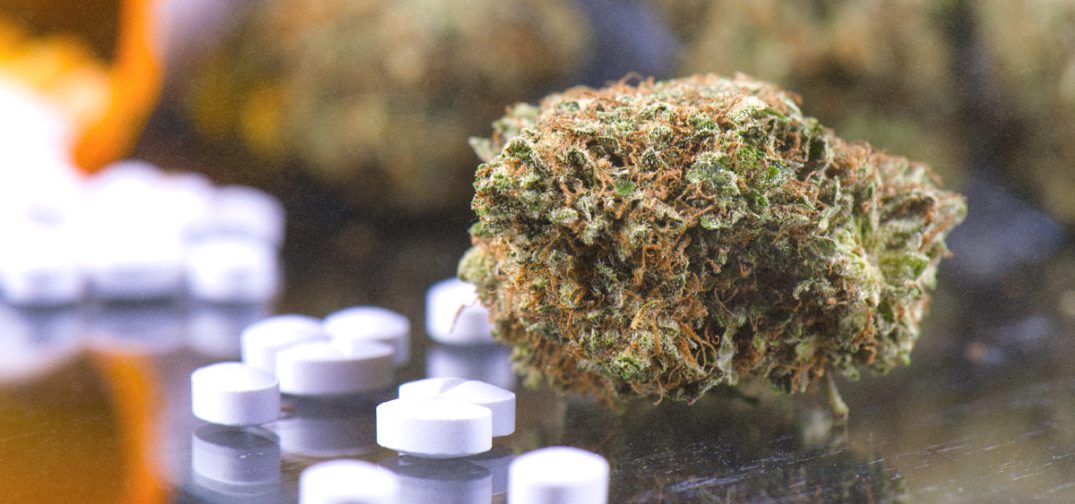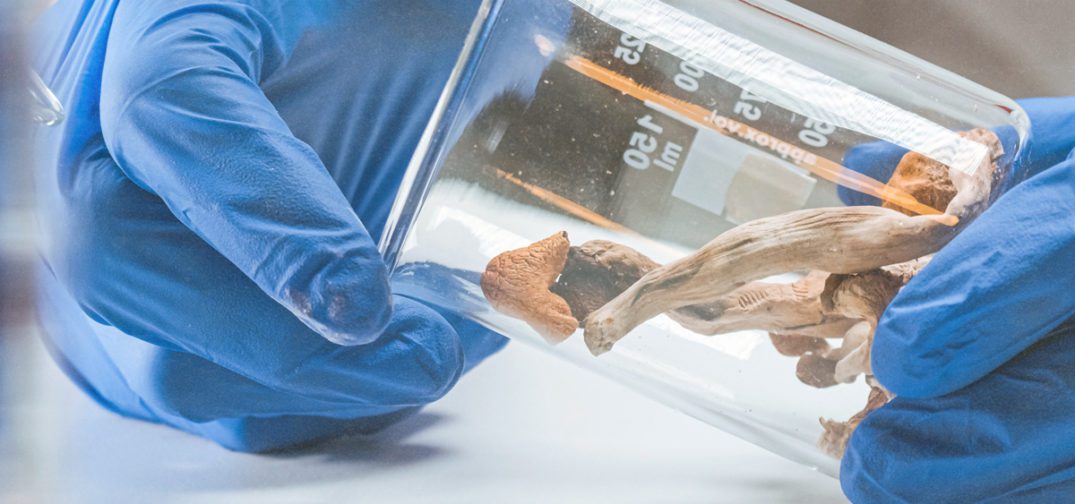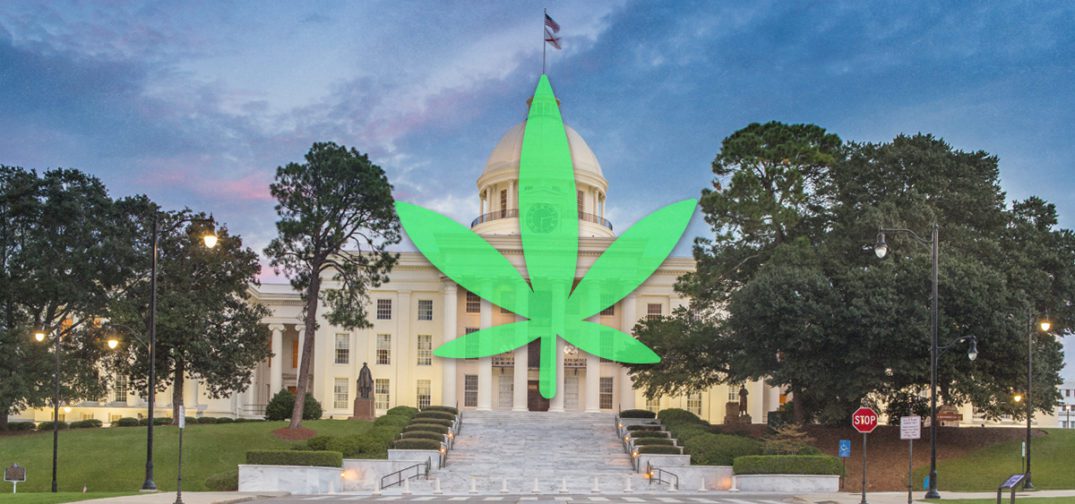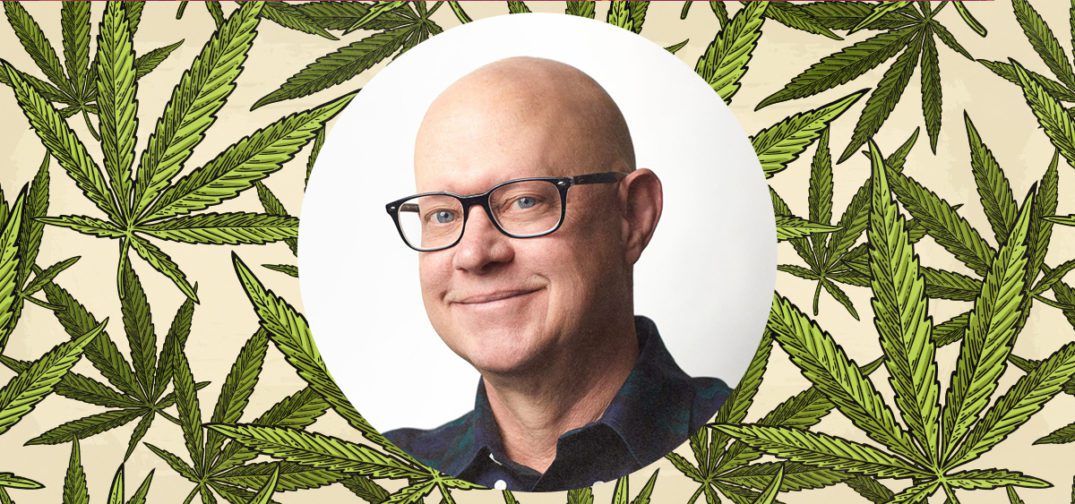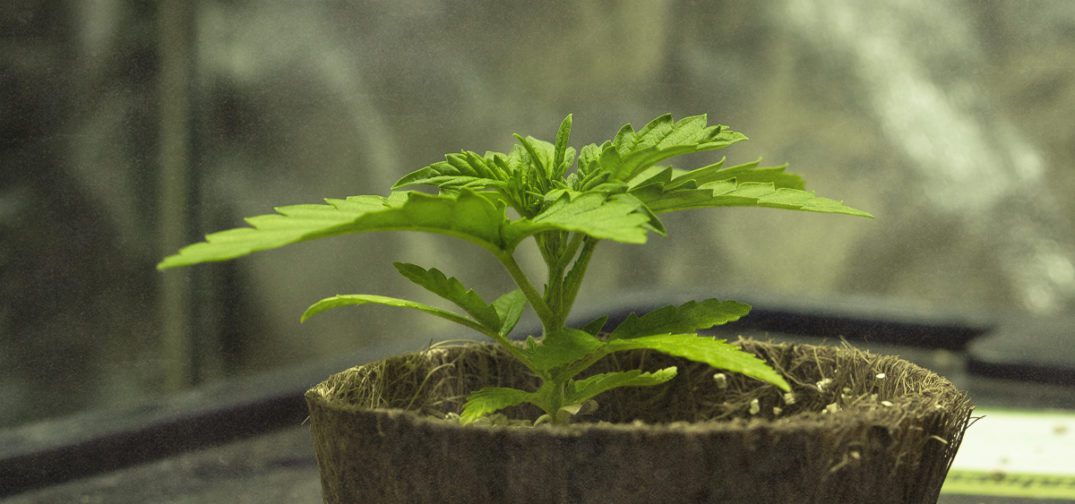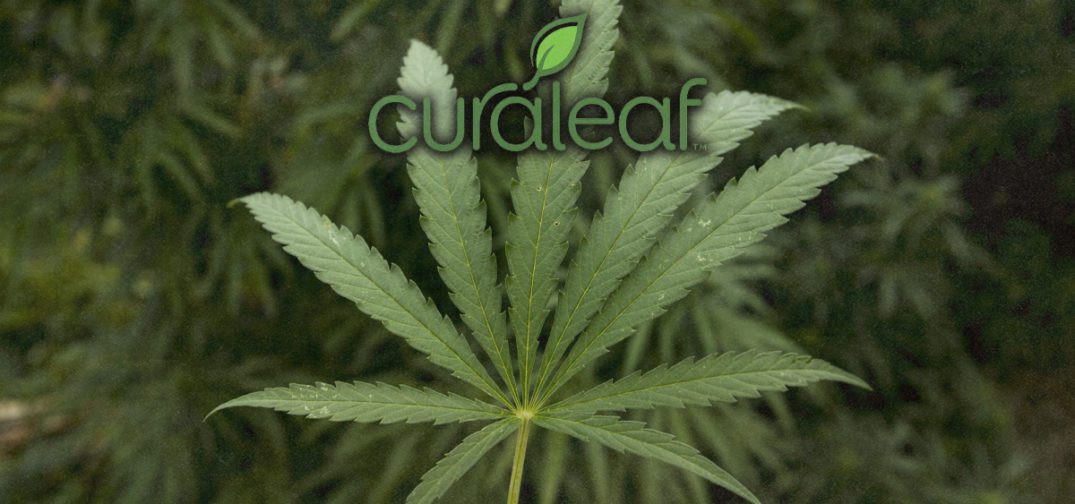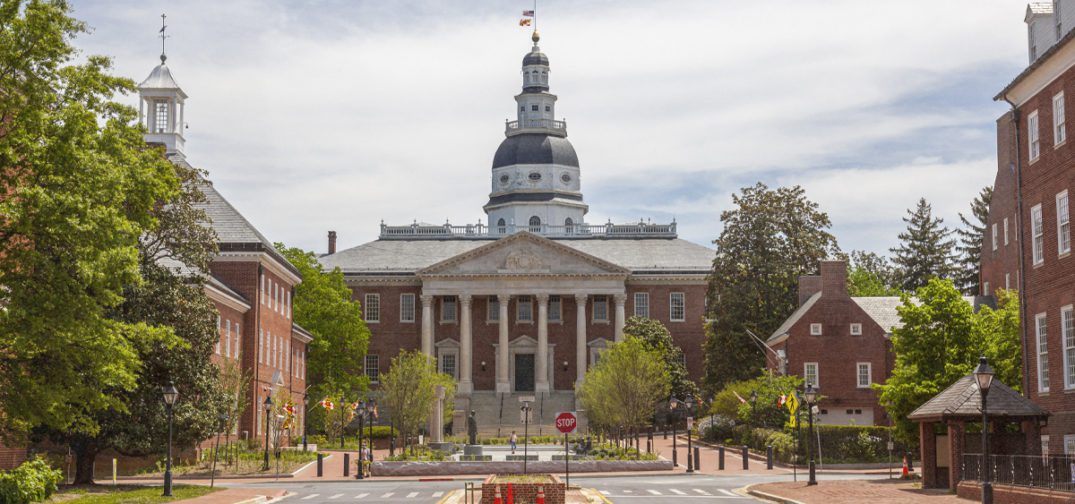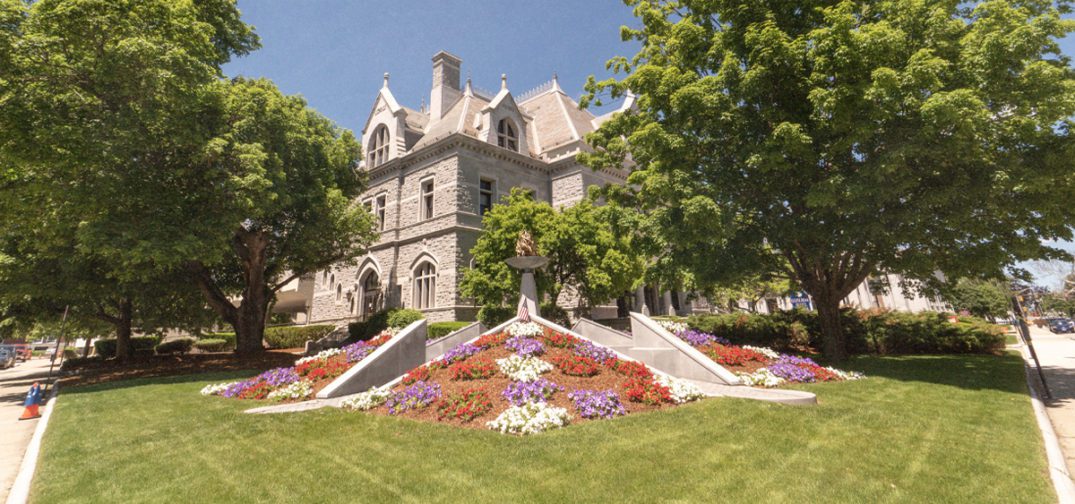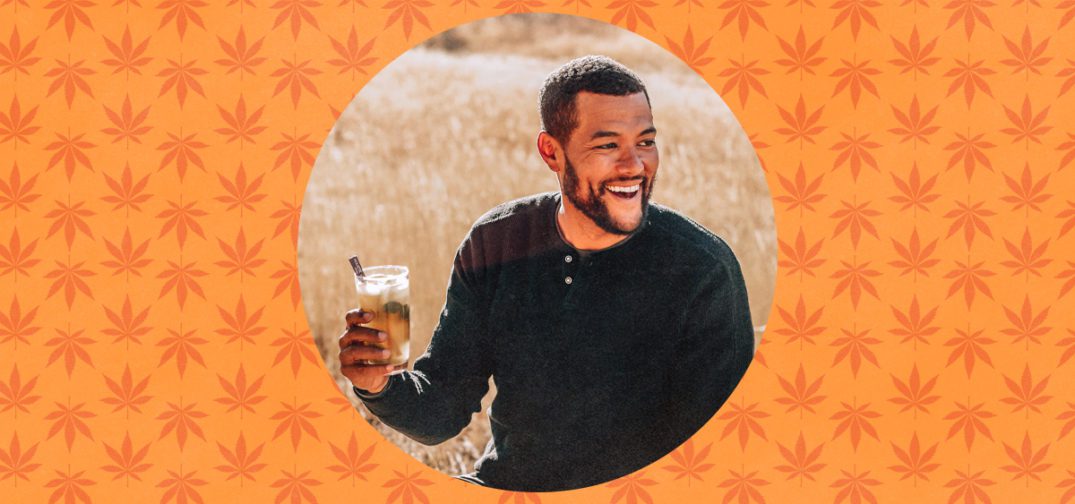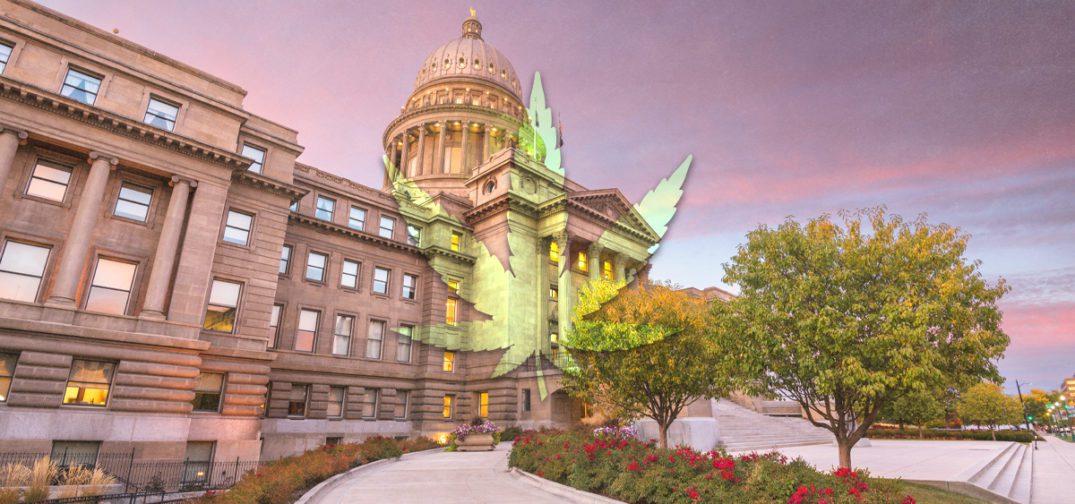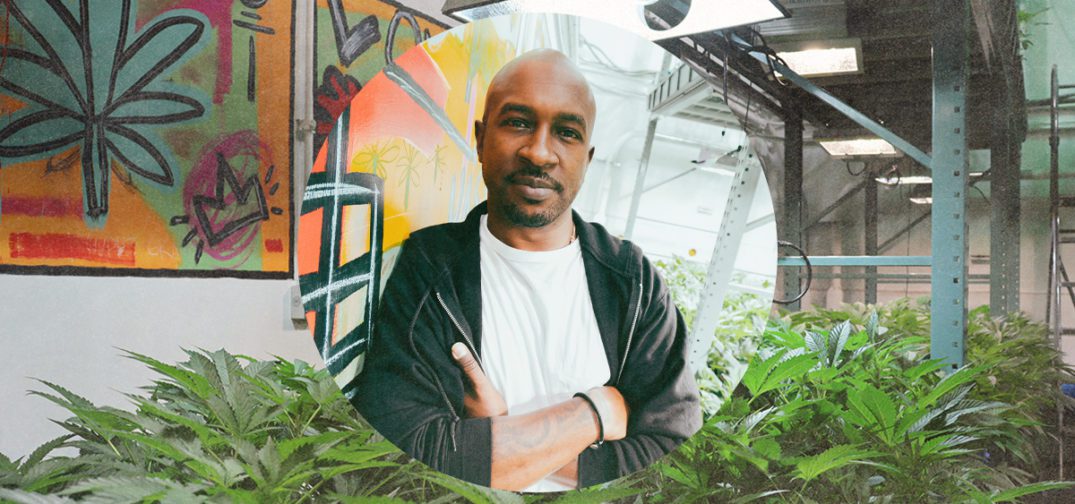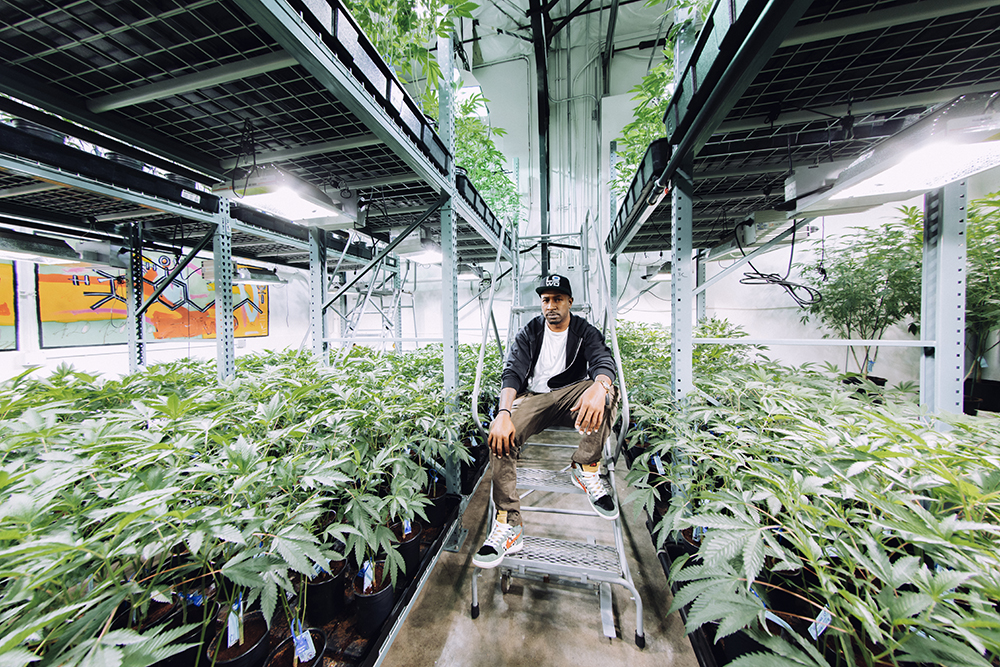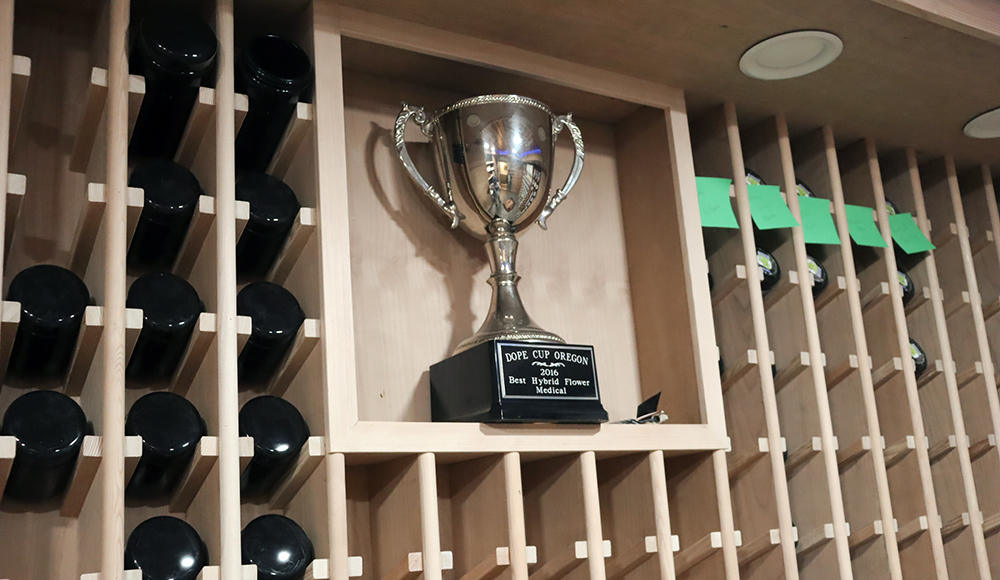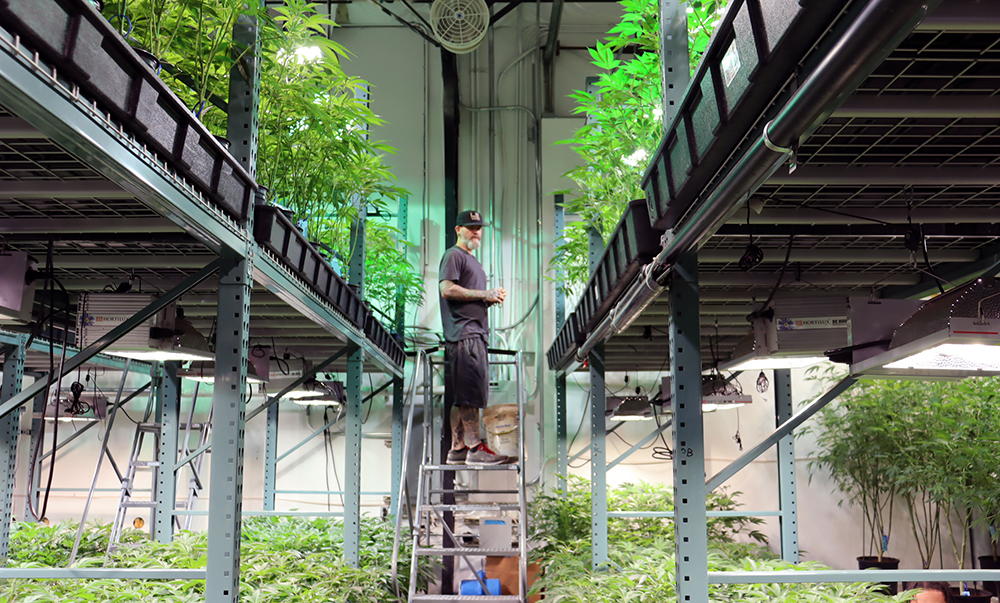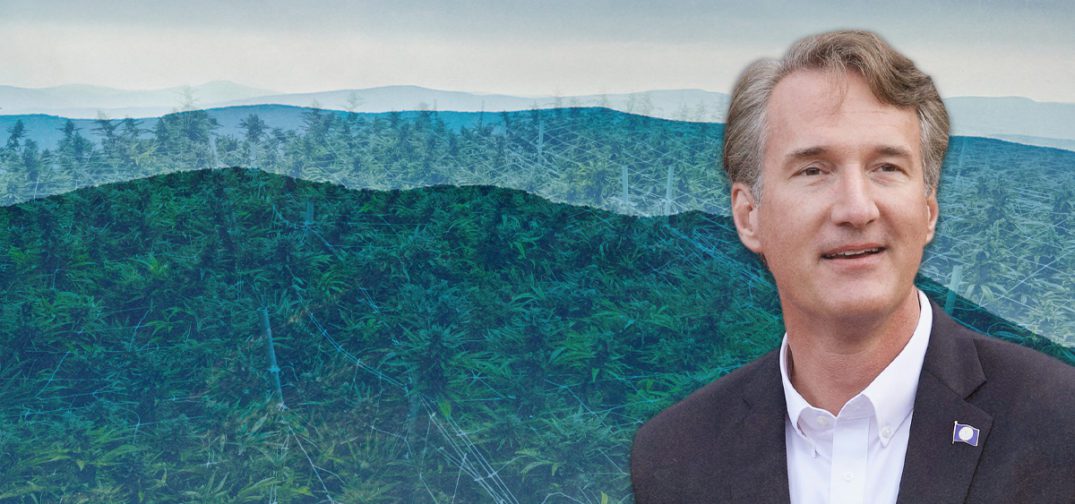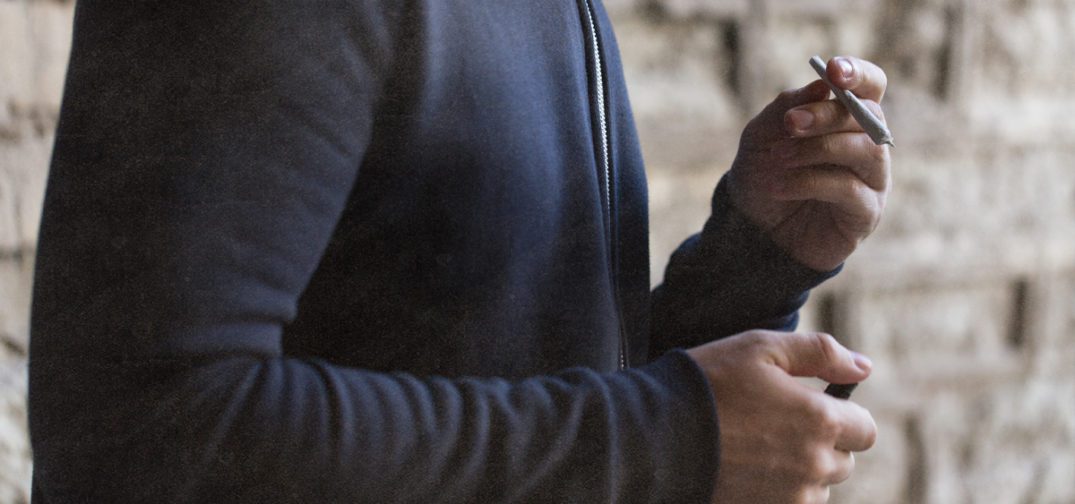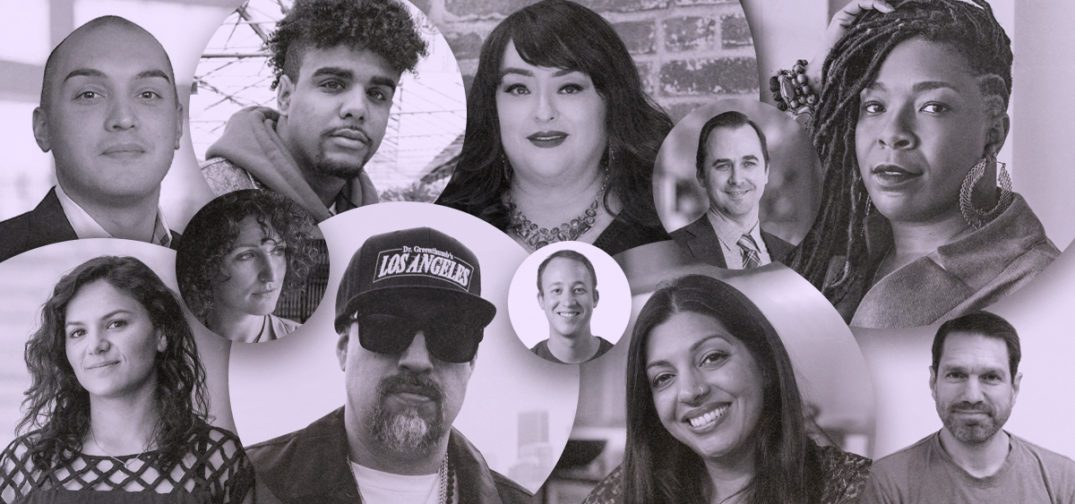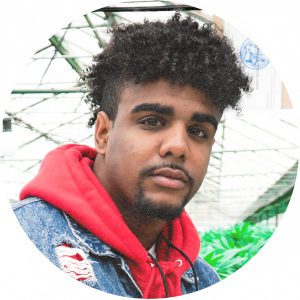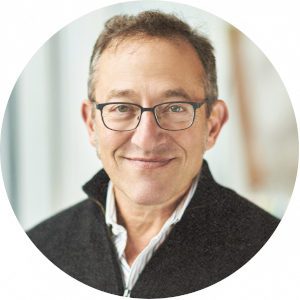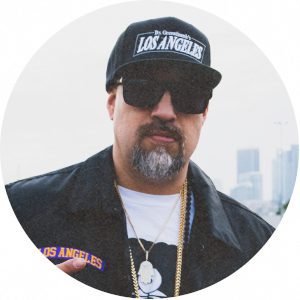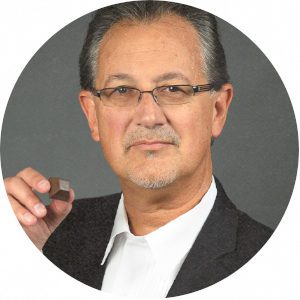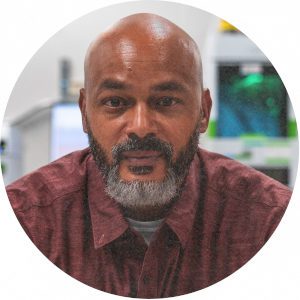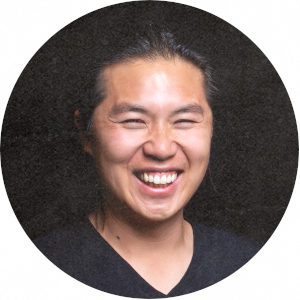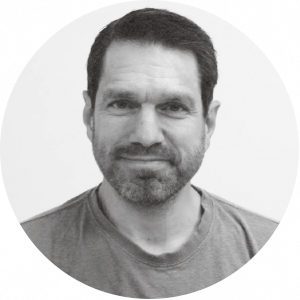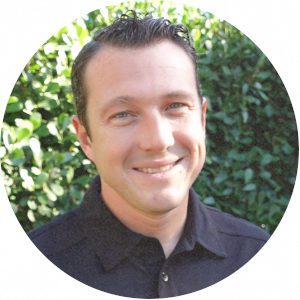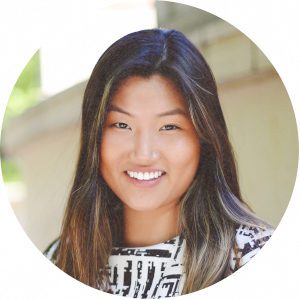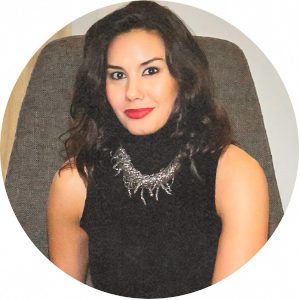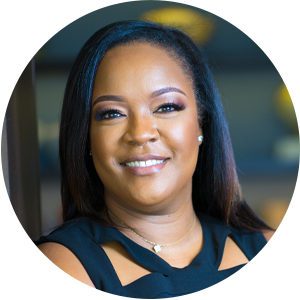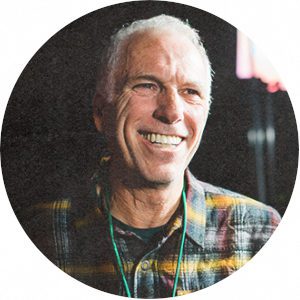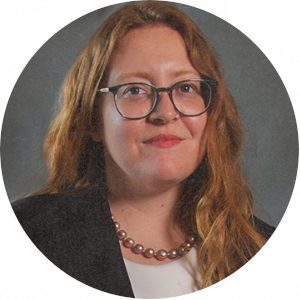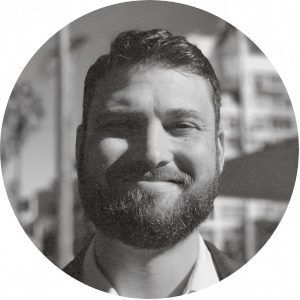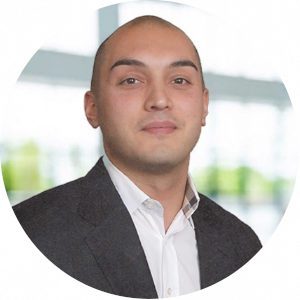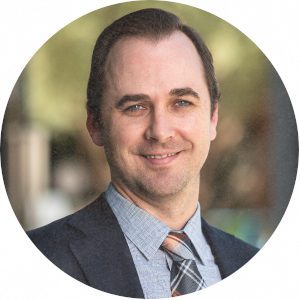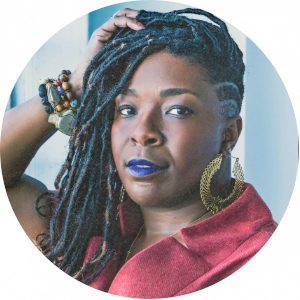As cannabis becomes more and more ubiquitous in social circles and even in public spaces, it’s important for new cannabis products to collectively drive the industry’s innovation and acceptance by more mainstream audiences. MyHi is especially in tune with that fact as a company and has dedicated a significant portion of its launch and brand identity to centering the conversation about social and convenient cannabis use.
In this episode of the Ganjapreneur.com Podcast, our host TG Branfalt connects with MyHi’s founder and CEO TJ Stouder to discuss the inspiration behind MyHi’s patented stir STIKs, the benefits of being able to add its fast-acting and nano emulsified THC powder to any beverage, and how the product is changing perceptions of social cannabis use and the role cannabis should play in social drinking circles. The pair also discuss emerging cannabis markets and trends from around the country, strategies for building a brand in the whirlwind cannabis industry, tips for entrepreneurs who are considering their own cannabis venture, and more!
Listen to the full interview below. You can also scroll further down to find a transcript of the interview.
Listen to the podcast:
Read the transcript:
Commercial: This episode of the Ganjapreneur Podcast is made possible by AROYA, a comprehensive cannabis production platform for commercial growers. If you are a commercial cannabis grower, you can use AROYA to level up your production workflow, featuring a combination of precision instruments and powerful software that help you intelligently cultivate, dry, and process cannabis. The AROYA cannabis production platform is your ticket to greater yields and consistent quality. Request a quote today online at aroya.io. That’s A-R-O-Y-A.io.
Cara Wietstock: Hi, I’m Cara Wietstock, culture editor at Ganjapreneur and host of our YouTube show, Fresh Cut. The best way to understand cannabis business is to speak directly to those who work within it, and Fresh Cut was created to shine recognition on the people who fill these roles.
In this interview series, we focus on those with their hands in the dirt, both literally and figuratively, from cultivators to budtenders, educators to advocates, activists to lobbyists. We aim to illuminate the workers who keep this industry thriving. Enjoy one-on-one conversations with me and guests by watching along on the Ganjapreneur YouTube channel, and follow our social channels to keep up with the latest episodes. Have a great day.
TG Branfalt: Hey, there, I’m your host, TG Branfalt, and thank you for listening to the Ganjapreneur.com Podcast, where we try to bring you actionable information and normalize cannabis through the stories of ganjapreneurs, activists, and industry stakeholders. Today, I’m joined by TJ Stouder, he’s the founder and CEO of MyHi, a line of water-soluble calorie- and sugar-free THC powder stir STIKs.
This is a product that I’m really excited about as somebody who doesn’t really consume much alcohol and have used many different products to try to bridge that non-drinker gap with my drinking friends. I’m really excited to have TJ on the show to let me know more about himself and this product. How you doing this afternoon, man?
TJ Stouder: Very well, TG, TJ, thanks for having me. This is going to be fun.
TG Branfalt: Hey, and I’m screwing it up already.
TJ Stouder: That’s great.
TG Branfalt: I’m really stoked to have you on the show, as I said at the top and as we were talking about before, I don’t really drink that much, so to have a product that is water-soluble, it can be mixed with most anything. But before we get into all that, man, let me know about yourself. You have a really interesting background.
TJ Stouder: Awesome. Thank you. Yeah. In a nutshell, I was a kid born in Indiana that was a cannabis consumer for most of my life. I like to call it the home of the stigma to put it simply. Not a good place to be a cannabis consumer. Left Indiana, grew up professionally at Procter & Gamble working on a myriad of big brands and kind of around the world on different budgets, brands and marketing of building consumer products.
I learned one big insight throughout that entire experience, which brand consumer connections go a lot deeper than a point of sale purchase. I like to use the example of throughout quarantine we still wash our clothes with Tide because it’s part of who we are, not how we wash our clothes. That’s how P&G thought about building a brand and really how, let’s call it, I grew up thinking about brands.
Left P&G on a mission to find something closer to home, a product or something that would work closer for me. As I said, long-term cannabis consumer, didn’t think that was the answer, believe it or not, despite the green rush and everybody going that way. I ran into some close family issues that needed CBD and/or any form of cannabis that they could get into and saw light basically in my mom’s eyes that she needed a root, like a brand, like what I just discussed, to open up that world of cannabis to her.
It’s, as I said, the home of the stigma. It runs very deep and people are afraid of this plant. That nice branding, that approachability, the product design for your life has really become crucial to people discovering this plant and really what I dedicated myself to and all of my skills, and now I’m in cannabis for the last three years. Super excited to be here.
TG Branfalt: You talked about your time at Proctor & Gamble, can you tell me a little bit about moving from the more corporate culture at a multinational company to the cannabis space and what some of your challenges were?
TJ Stouder: Definitely. It was a fun journey. I’ll say it’s not as far as it would seem apart. The biggest challenge is really … it’s been built bottoms up on how corporate structure works. However, it works really well. It’s just … Let’s call it, P&G they call it proctoids and you learn exactly how to be a P&Ger from day one to the end, which is impressive and it works and good teams, strong teams. You get brilliant people across all their roles.
Stepping out of that, we walk into cannabis where it’s a very differently trained environment of corporate world, however motivated, ambitious, sticking to the things that work and really focusing on blocking and tackling of getting stuff done. You see a lot of parallels. I’d say biggest challenge is timeliness of meetings. You ask what I’m doing today, I have no idea.
I hope I have at least 10 important meetings coming up after this, but it’s always fluid and you got to adapt. I think we share an awesome passion for wellness for consumers that drives us all to work 24/7, work harder than any industry I’ve ever worked in. Again, super excited about the momentum of cannabis, but some of the blocking and tackling we’ll still have to work on.
TG Branfalt: You had said too that going from Proctor & Gamble you didn’t exactly see yourself going into cannabis. You mentioned briefly your personal story. Was there something personally that you saw preventing you from getting into the space or what was your thinking at that time?
TJ Stouder: Good question. I’ve never answered that one. I’d say honestly, I never worked on spirits for a reason. I believed in the products I worked on and that they truly brought wellness or some better good to the consumer’s life. I saw cannabis like I saw spirits. It’s recreationally okay to go out and exit work, throw out some stress, have a party on a weekend, go to a concert, whatever it might be, but it’s not a way of life.
I don’t drink alcohol as part of who I am. It’s not something I do as you said, as a non-drinker. We evolve from our college days of how much can I drink? Versus, okay, I’ll have a social beverage with a friend or a business meeting, something like that. I think what I learned through my family members and my mom’s wellness journey was there’s a lot more to this plant. I was a recreational consumer that didn’t see the downside of it.
I was more than excited to consume cannabis myself, but I didn’t see the upside and how in important that can be as a product to consumers and really bringing this product into their everyday life. That’s where I really saw it as a career when I learned about the wellness upside of this plant and frankly, the recreational side is wellness.
As I watch states look at medical versus rec, it’s a happy hour is wellness for a consumer. It’s stepping out of your stresses from the day and getting ready to go into your evening and hopefully enjoy your family time, whatever that may mean. It’s more than getting as drunk as you can get at a bar.
TG Branfalt: Yeah. I mean, that’s something that during my tenure covering this industry, I realized that yeah, I consumed recreationally. I never had an interest in getting a medical card, but then realized, “Well, I’ve been medicating this whole time.” To your point, I mean, I think even for people who have consumed cannabis for a long time, that we end up there in that thinking, if you know what I mean.
I want to talk to you about MyHi. When I first saw this product, the first thing I went to personally as a guy who really loves candy and sugar was Pixy Stix, man, just THC Pixy Stix, and that excited me. Then obviously I started reading a bit more and I was like, “Wow, this is sort of a game-changer in many ways.”
Because as a non-drinker, I go to the bar, I order a soda and then I have to go outside, smoke a joint, or rip a vape or eat 30/40 milligrams of edibles before I get in there. It was something that excited me. Tell me and the listeners a little bit more about MyHi and what really differentiates it from other edibles in the space.
TJ Stouder: Awesome. Well, and thank you for telling a bit of the story through your own experience, because it’s exactly MyHi, how you said it. We like to say MyHi, my way. I am a cannabis consumer who finds a lot of points in my day that are tough to consume. Products don’t fit, as you just explained. I’m out with my friends for a drink and stepping outside to smoke a joint takes me away from my friends.
I miss a couple of toasts. I miss some news update, friend’s pregnant, et cetera. I’m outside smoking a joint. I take that edible before I go in. I’m not high when I get to the bar, an hour later I’m too high and it’s managing that experience. For me, it’s a product that fits in between all the others for those moments where you can’t consume for the cannabis consumer.
Secondly, and as you get to Pixy Stix, it’s that experience for a consumer that differentiates our product and bringing it back to like a cocktail, mixing up a drink at the table when your friends are having an alcoholic cocktail or elevating your alcoholic cocktail as you prefer. It’s that experience of stirring it in that makes cannabis cool to everybody at the table and you don’t have to separate to smoke.
You don’t have to eat the gummy under the table. You’re back in the middle. Lastly is that nanoemulsified powder is crucial to that experience. I choose flower as a consumer because it’s manageable, controllable. I know exactly where I’m going to go and how far. That’s why I like flower and I find with other discrete products, it’s often tough to manage some of that curve. With the nanoemulsion, it hits in we say 15 minutes conservatively.
Some of our consumers come back with faster, really like a cocktail would. You can have one every 30/45 minutes as you’re out or have one quickly on the go and you know exactly how far you’re going to go. Really MyHi, my way puts that experience back in the consumer’s hands to enjoy the product at their pace out and about.
TG Branfalt: Well, I mean, as most people know and you know, and I know, is the average edible, I mean takes 45 minutes to an hour, especially somebody my size, 6’3″, over 200 pounds, it can take a while. What type of cannabis consumer is MyHi aimed at? I know you say MyHi, my way, but for older consumers generally we say start low, go slow. Start with little 2.5, five milligram edible, if you’re going to go there. You talked at the top about marketing and brands, who is the end-user in your opinion for MyHi?
TJ Stouder: Awesome. A lot of people, I think. I like to say America drinks and I want to make that mean something different.
TG Branfalt: Interesting.
TJ Stouder: I mean, right now I have three beverages in front of me on my table that fits into my routine. It’s a water, a coffee and a juice from my breakfast that’s sitting here ready to be infused. I think the target demographic is really somewhere between the non-canna curious and I’ll explain what that means to me, and what we obviously know, the canna curious.
Non-canna curious to me is I live in Colorado and 75 to 90% of my friends don’t go to a dispensary more than once a year. That’s concerning for me as a category participant, investor and believer in the growth numbers behind this category. A developed market like Colorado, and I have a pretty good group of friends, that don’t see the need to go into a dispensary.
That for me, we get super excited about the current cannabis consumer. We all have friends that say, “I don’t smoke, or, eh, I had an edible one time and I was glued to the couch for the next three days. I’m not trying that.” I think encouraging that non-canna curious, who’s seen so many barriers about why to go in dispensary or really the intimidation about the products there, it’s approachable, it’s branded, it’s fun.
It’s something they can do that’s more like other things they consume in a beverage and a cocktail. I think that differentiator for the non-canna curious is most important for all of us to share what we believe are the upsides of this category with the new consumer. However, again, the flower I buy announced, and I don’t look at any other products.
I believe this stick elevates that experience in a way that me, as nearly that consumer, I put one of the sticks in the water, and enjoy a bowl or a joint next to it, really elevating that high to another level from an experience standpoint and because of that nanoemulsion, fast-acting, getting the high more elevated than it would’ve been on just a joint.
I didn’t even get to the caffeine element, which I should mention, but we do 30 milligrams of green coffee bean extract that truly elevate the experience versus I think many disappointments with sativa.
TG Branfalt: Yeah, and we are going to talk about the recipe a little bit later on, but I do want to just touch onto your point that I’m one of those people, I mean, I live in New York. We don’t have dispensaries. When I go to dispensaries, I’m primarily looking for edibles, metered-dose edibles so I know what I’m going to get.
So to have a drinkable product which are not … or a product that can be mixed with drinks, in an immature markets such as Massachusetts that doesn’t have a strong canna beverage presence, I think is something that I personally, a long-time consumer who really does like edibles would gravitate toward to that product. To your point about the non-canna curious, how overall does your product fit into the canna beverage market, which I said is mature some places, immature other places?
TJ Stouder: Super excited for canna beverages across the board. I think the category speaks to a lot of what I’m looking to … excited about on our product and how it hits the demographic. A lot of them are ready-to-drink beverages, which I think for a consumer has a place and a time and you know what you want to drink. I’m at a convenience store in a normal beverage, I pick my favorite juice and I’m ready to go.
What our product provides is the ease and convenience of infusing whatever you’re drinking, wherever you’re drinking, which I think the biggest benefit for consumers is it doesn’t have calories and it doesn’t have sugar. If I put it in a water, it’s a refreshing water that gives me my dose without anything else. If I want to make a hightail, I can get creative and make whatever I want.
I think as I look across the beverage markets, a lot of them are ready to drink and exciting and I think we’ll have a great place in that consumer’s refrigerator. We’re hopeful to be in every pocket, in their hats, behind your ear, easy, ready to go, convenient because our consumers are on the go. They live multitasking lives everywhere they go.
TG Branfalt: I’ve never heard the term hightail before.
TJ Stouder: That’s new. We’re working on coining it. The thought is replacement for a cocktail or elevating another mocktail and really MyHi-tail.
TG Branfalt: I like that too. What do you anticipate or expect the beverage market to look like when it’s fully mature?
TJ Stouder: Great question. I think full spectrum, the markets we look at today, beverage is small and growing rapidly. The rationale for that in my mind is they’re nascent markets with consumers like me that are hard to convince to change their product. I have my flower in my cabinet. I’ll check something else out here and there but I know my routine at the end of the day.
I think the emerging markets are super exciting from Las Vegas to New York, let’s call that the emerging side of the country, not fully developed, where new consumers aren’t used to smoking flower. They don’t understand concentrates. They’re a bit more connoisseur, whatever it might be. I think the new products and especially beverage are going to have a big way.
Then lastly, as I mentioned, markets like that, social lounges will be game-changers for cannabis. It’s the fact that happy hour at a cannabis type bar with no alcohol is going to be a new concept that I’ve experimented a lot with, but I know most of the country has not.
That’s the most exciting part for me, because waking up the next day at 5:00 AM to run and go to work is a new feeling for an alcohol drinker himself when you’ve had a long night out. I think that’s the growth market and I think it’s going to be a much larger portion of the national category split.
TG Branfalt: Well, and if I’m not mistaken, Colorado just recently passed social use legislation, is that accurate?
TJ Stouder: Correct. But it’s small and there’s a few licenses. Again, in a nascent market, I know how to consume at home. It’s bringing me out into the … And again, look where alcohol is. It’s everywhere from the ballgame to the park, to the kid classes on the weekend, alcohol has found its way to be our social life. Cannabis is not there in any market with social use. It’s separate from what everybody else is doing.
TG Branfalt: Have you had any potential social use licensees reach out to you yet?
TJ Stouder: Not yet. We’ve talked to a few that are working on plans for the back half of this year in California. We’ve only launched in California to date, but writing’s on the wall coming very soon. We are talking to some people in New York that are … It sounds like they’re going to aggressively move to the lead in social use. I think things are going to come in 2022 for sure.
TG Branfalt: I have to ask you this question and recently there’s been other products that have gotten a little bit targeted for their marketing practices we shall say. I’m not going to name names here, but what your product is essentially, it is a powder. Do you anticipate, or have you experienced any pushback for a powdered cannabis product?
TJ Stouder: It’s a great question and nowhere you see the risks of powders and I know why some of these companies are receiving backlash, at least in my opinion. We try to tailor our entire experience around that beverage delivery and it all starts with our stick itself, which is it’s designed off the Mai Tai umbrella. MyHi, you start to see ordering a bar and a drink, it sits nicely on top and looks like an umbrella in your drink.
Really everything we communicate is about infusing safely above 21, 18 with a medical card, beverages and really even we stay away from alcohol trying to manage that experience. As you said, with microdosers, learn how you infuse four ounces of water, learn how that 15 to 30 minutes goes and really learn how it works with your body first.
Really again, we’re a wellness-focused company that sees a recreational high as part of a wellness routine and everything we do in our product follows that nature. I’ve seen some of the others that are going different roots with powders that frankly, again, because I believe in cannabis as a category, I believe in the wellness nature, I think we need to be overly cautious with everything we do ensuring that people are consuming safely.
As a company, we believe in that. We continue to push. I’d say the biggest backlash we receive is really from buyers and dispensaries that are learning the category and new formats and how the science behind the actual pattern itself delivers to the consumer that is an educational curve for the category that we think we can get around with great marketing, a great delivery device that really differentiates versus that crowd.
TG Branfalt: In the three years that you had said that you’ve been in this space, how much of that has been focused on educating people about your product?
TJ Stouder: A lot. We do it very simply because we do it via trial. We sell all of our products in one, singles. So you can try it first and assume it works for you. Biggest for us is check this out. We do it as cleanly, safely and with this technology very transparently as possible, give it a shot. It’s a lot of people, like you said, are exploring beverages in the early days, even the more connoisseur consumers, but it might be the first beverage they’ve ever tried.
It’s really experiencing that first stick is what we try to get everybody a chance to do via everything from events to sampling. Education is transparency in my book because I think the category in total is learning by the day. We give that consumer promise that we’re going to stay ahead of the curve and really vet the right technologies and ensure your experience is top notch.
TG Branfalt: Talking about the experience, we spoke briefly about the recipe earlier. Tell me about the process of coming up with that recipe, which includes green coffee bean extract, L-theanine, theanine. I’m not a science, man, and monk fruit, which I think is very interesting. Your background isn’t necessarily in food, beverage, so tell me about your experience coming up with the recipe and what that process was like.
TJ Stouder: Awesome. Number one is transparency and know your lane. I never try to be smarter than I am and I find somebody smarter than me when you need something like formulation. However, it started with an insight and as I mentioned earlier, better than a sativa. I’m disappointed by sativas and I think we all know the … or at least the more experienced cannabis will know the seeds aren’t what they used to be and sativas and indicas are mostly a myth.
There’s mostly hybrids available and the mix of terpenes on that plant will greatly affect your experience, especially state to state, et cetera. A lot of those challenges of flower. Sativa, I always find myself grabbing a coffee next to a sativa to actually give myself energy, “That’s not what you promised sativa,” is what I say as a consumer.
Really what we did, we picked a hybrid extract to really capture the essence of that THC nanoemulsion that goes into your bloodstream faster, really delivering a more elevated experience naturally. Then green coffee bean extract, which is pure all-natural green coffee bean, 30 milligrams. That’s about a third a cup of coffee. It gives you a nice social awake high next to your THC and it’s really energizing, productive.
It’s funny, the influencer is coming back to us when they run out of samples saying, “I got so much stuff done while I have my MyHi.” It’s a new category of high. We’re saying that kind of asking people to prove us wrong, but it’s a different experience versus other products we personally have tried. It’s energetic, it’s awake, it’s social and it’s buildable as you have a couple of them next to each other.
Green coffee beans, the core that you’re actually going to feel, the next one is L-theanine which really is anything negative anyone gets from coffee, jitters, drowsiness coming down, things like that, L-theanine kind of balances that out and really L-theanine means balance, focus in general, an all-natural let’s call it brain supplement.
It’s a nice next to that caffeine and THC, keeps you balanced and focused, which a lot are feeling, especially on those longer evenings of enjoying MyHi. Lastly, monk fruit is critical for the no sugar piece and no added artificial sugars, et cetera. Monk fruit … I don’t know how it was discovered recently.
I just wanted to learn more about monk fruit myself, but I’ve been using it in everything and anything I can. It’s all-natural sugar. It doesn’t spike your sugars for diabetes. It is a super fruit that we’ve been missing to sweeten nicely. It’s only 10 milligrams, but it gives a nice little sweet refreshing edge on the end and keeping that no sugar, no artificials.
TG Branfalt: Interesting.
TJ Stouder: I didn’t actually answer your question. I got all that from Google. I started with literally the insight and I said, “What’s the best way to naturally do this stuff?” I think it’s funny that we work so hard in a lab to come up with complex long formula cards that the consumer can’t understand, and that’s how the consumer actually finds wellness.
For us, we’re starting very simple. THC is at the center of our product. Everything else is to help that feeling along, but innovation path is strong and we’re planning on doing minor cannabinoids, other formulas, terpenes, et cetera, to really bring different moods, different taste profiles and whatnot to MyHi. It’s just a start, let’s start with energy.
TG Branfalt: Is there a particular terpene that you’re more excited to work with or a specific cannabinoid? I mean, you seem like you’ve done a whole of thinking about this.
TJ Stouder: Lots and lots. I’m excited for cannabis. I mean, what we don’t know is what I’m most excited for. I’ll give you an example on the terpene front. We study about 40 terpenes out of over … I’m not even going to quote a number. I’ve heard over a hundred thousand as the safest number I’d say known terpenes on the planet, most concentrated in cannabis as a plant.
For me, what was destroyed over years of stigmatization and prohibition of cannabis is too sad to think about and what’s yet to be discovered because we’ve only really started researching the depth of this plant is too much to dream of. Really crafting that experience with some of the scientists who actually do the work behind me being a googler with insights, there’s huge upside.
It’s just really tailoring that experience up to fast-acting and long-releasing that can do it 15 minutes by 15 minutes where you’re going to go all via this stick.
TG Branfalt: Again, I hate to harp on it, but it’s one of these products and you’re just so interesting in the way that you present it, that a lot of times I don’t really get to … What’s the word I’m … I don’t want to say excited again, but I’m normally not super stoked on these things. Now that New York’s legal, I do hope that it is something I am able to find on the East eventually.
What states are you most excited about entering? You said that you’re right now only in California, what’s the future look like?
TJ Stouder: We have a small team that’s very focused. California’s the largest market with the most brands, frankly, is why we’re starting there. We want to prove it against the big guys and again, that we can grow a cannabis consumer’s basket size, the guy who’s buying flower concentrates and edibles already, plus a MyHi.
As well as drive new traffic into every one of those stores to look at cannabis for the first time, because they saw a product like this or see that’s something that might be approachable to their world. We believe after proving that in California, looking at a multi-state operator that has multiple states quickly, three to five to 15. We provide a unique standard operating procedure that gets up and running quite quickly.
It’s the patented delivery device of the stick itself, the consumer brand that’s ready to plug and play into any market and really hit that demographic provides a differentiator versus cannabis. There’s, as you say, kind of … And I don’t know how to put this in the nicest way. I’m a consumer that loves going into dispensary and I see the excitement of every consumer in there. The products we got to step it up.
As I look at the counter and I see one after another of things that look a lot alike and don’t motivate me to consume it, it’s … I love cannabis. I’m happy to buy it because it’s something there, but how do I find which product’s going to change my life? How do I find the one that if I’m going into quarantine, I need to stock up for a year and a half because there’s no chance I’m running out of this product?
I think we, as a category need to continue to push ourselves that just because the consumer’s willing to buy it, doesn’t mean it’s our best effort. We got to push for better and better and better and more innovative. I get excited about as more states come on board, as federal legalization looms, better and better products are coming.
It’s exciting to see the innovation for me as a consumer, beyond our product, and I say this to all of us as motivation. It’s exciting to see new products, new consumption, new consumers.
TG Branfalt: I mean, I really appreciate your insight. Your background’s very different than a lot of people who enter the space, and you’ve obviously chosen a very successful team. One that shares your vision, which you’ve clearly stated and I think is very worthwhile in this space at the very least. What advice would do you have for other entrepreneurs looking to enter the cannabis space?
TJ Stouder: Excellent. I think number one is find what you do best and find how to do it in cannabis. I think the world we see in cannabis today is a very small portion of what it will be in the future. I talked about things like social lounges and hospitality. They don’t exist yet in cannabis. I get a lot of people that come and they do something completely different from what cannabis today looks like, which I felt like that person.
I’m a consumer brander that came from P&G and worked on fine fragrances down to detergent and it’s, how do I play a role in cannabis? There’s no brands, there’s no scaled consumer products, et cetera. Ah, this is a consumer product that we need to scale and the industry needs you with your well-meaning mission to come aboard.
It’s finding how cannabis grows into the world you live in because it’s going to, as legalization comes in, as more consumers come on board as part of their daily routine. Find what that is and put your all into it. You really want in, there is plenty of space to grow this category.
TG Branfalt: Finally, my man, where can people find out more about MyHi and maybe find out more about you?
TJ Stouder: Awesome, getmyhi.com, G-E-T-M-Y-H-I.com, that’ll be in the show notes, is the best place, check it out. Now, all of our information my team’s done a phenomenal job with the website in our early days of launch. There’s plenty there.
TG Branfalt: The marketing is really something special.
TJ Stouder: That’s where we start obviously, and then come to California. We’re starting there, but hey, get out there this summer. It’s the summer of ’21. People are traveling again. I think we’re hopefully past this pandemic. Check us out in California. Would love to hear your thoughts if you get some product. If not, ask your local budtenders, write to your governor wherever you are in cannabis. We’ll come to your state hopefully soon.
TG Branfalt: Brilliant. That’s TJ Stouder. He’s the founder and CEO of MyHi, a line of water-soluble, calorie- and sugar-free THC powder stir STIKs. Thank you so much my good man for being on the show and I really look forward to one day finding MyHi in New York or Massachusetts, or basically anywhere on the East Coast now that we are opening up. Thank you so much for being on the show.
TJ Stouder: Awesome. Thanks TG.
TG Branfalt: You can find more episodes of the Ganjapreneur.com Podcast in the podcast section of ganjapreneur.com on Spotify and in the Apple iTunes Store. On the ganjapreneur.com website, you will find the latest cannabis news and cannabis jobs updated daily, along with transcripts of this podcast. You can also download the ganjapreneur.com app in iTunes and Google Play. This episode was engineered by Trim Media House. I’ve been your host, TG Branfalt.
